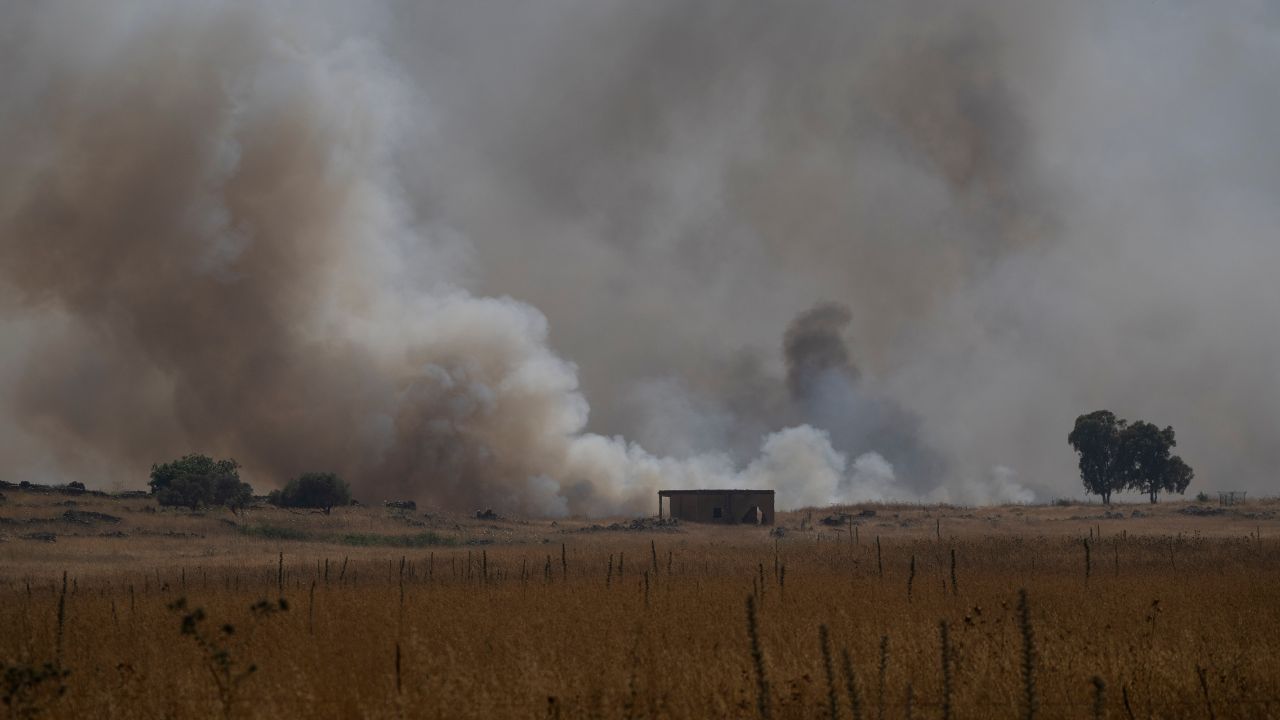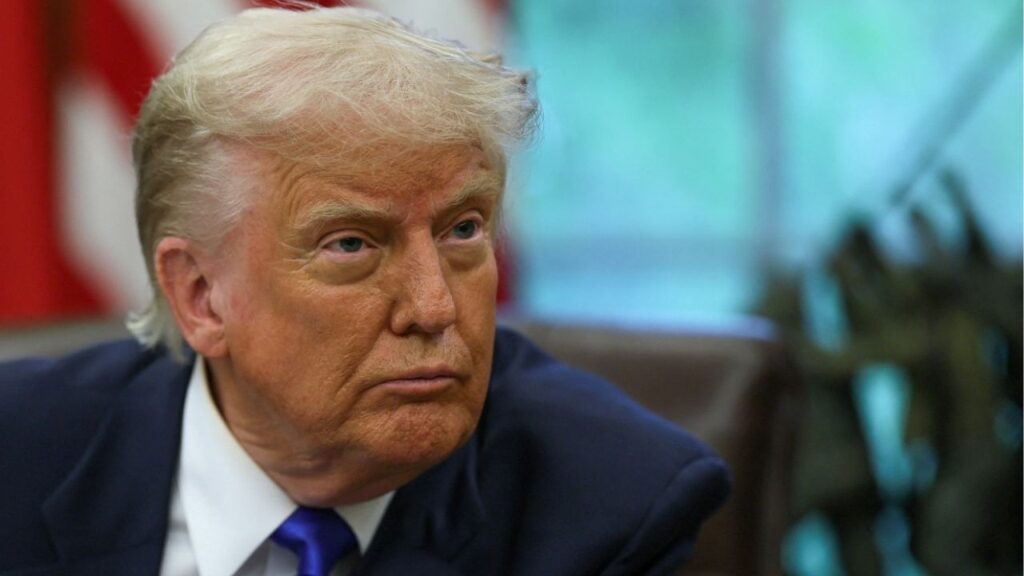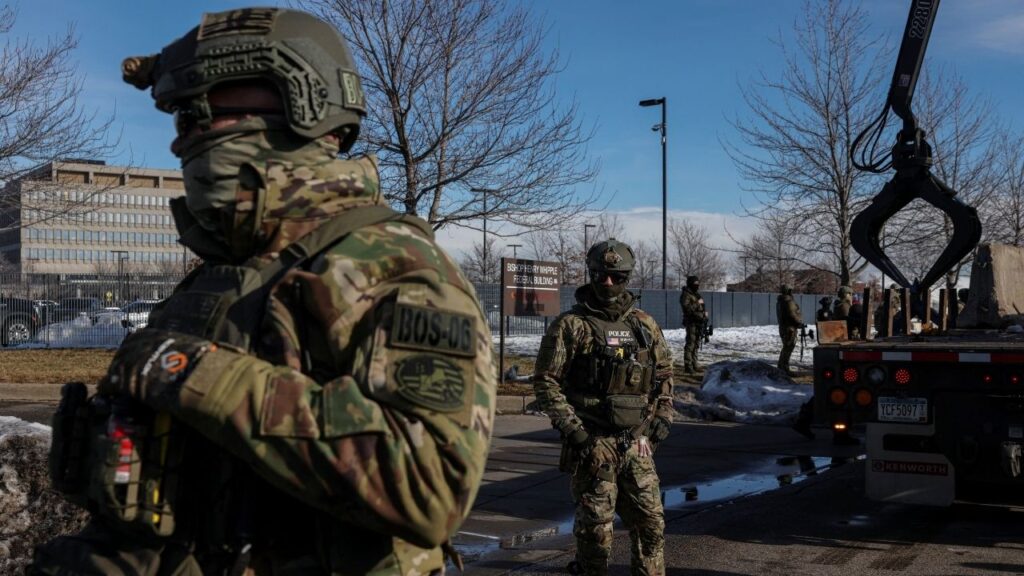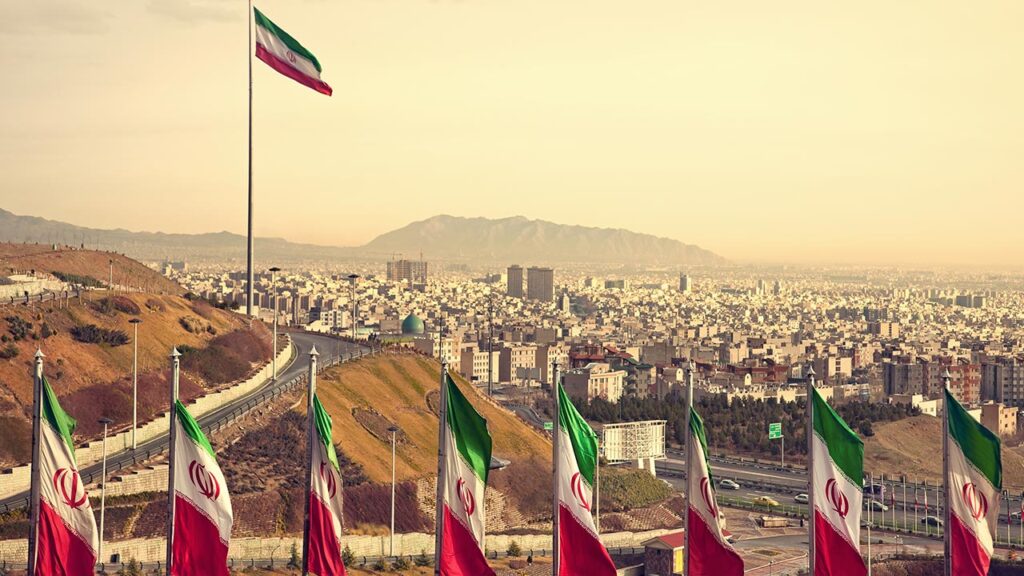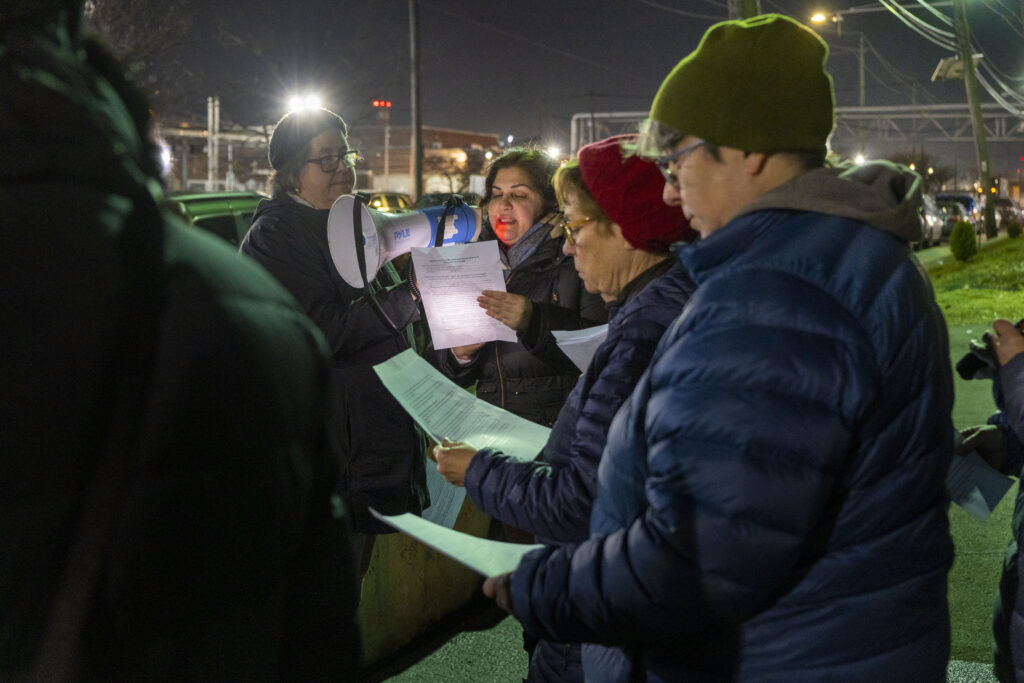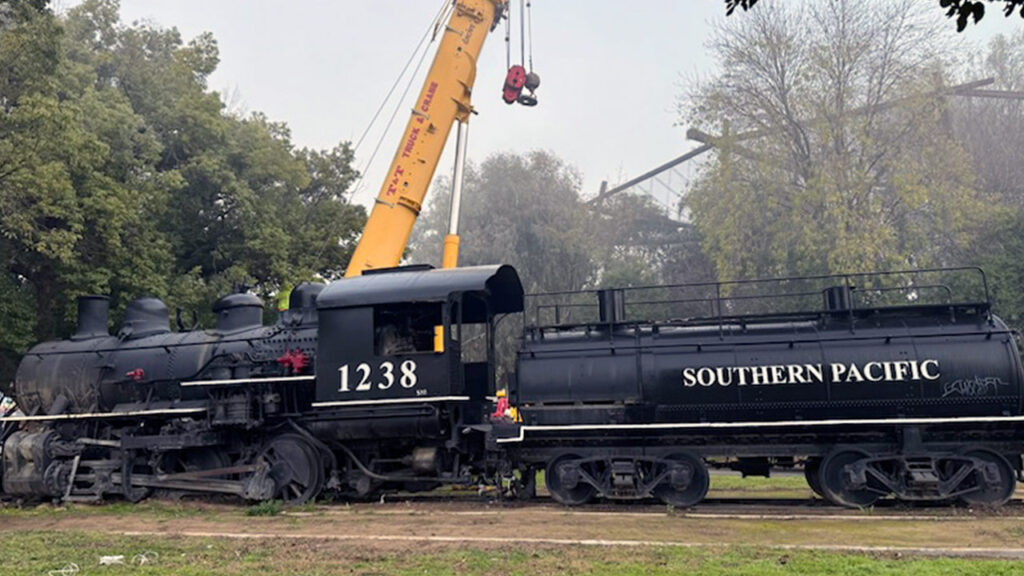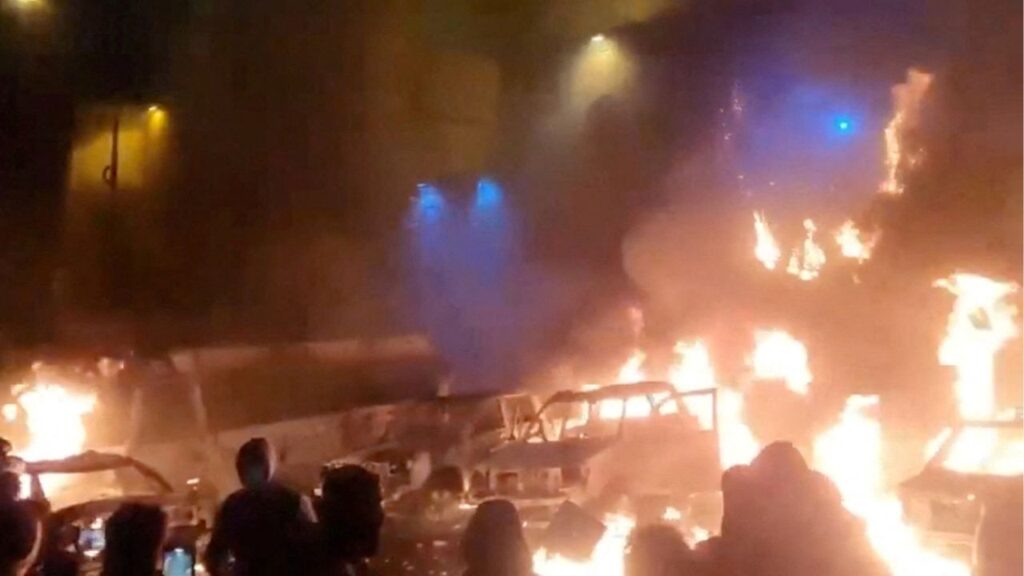Hezbollah's escalated strikes near Israel's border aim to dissuade full-scale conflict, amid ongoing cross-border skirmishes linked to Gaza, while U.S. sanctions against Israeli obstruction of aid to Gaza underscore international tensions. (AP/Leo Correa)

- Hezbollah intensifies attacks on Israel’s northern border to deter all-out war.
- Israel and Hezbollah engage in daily cross-border attacks amid Gaza conflict.
- U.S. sanctions Israeli group blocking aid convoys to Gaza.
Share
|
Getting your Trinity Audio player ready...
|
The Lebanese militant group Hezbollah says its intensified attacks along Israel’s northern border this week demonstrate to Israeli leaders that an all-out war would be costly, senior official Sheikh Ali Daamoush said in a sermon during Friday prayers.
Iran-backed Hezbollah militants launched dozens of rockets Friday in a third day of retaliation for the killing of a senior commander. The Israeli military said approximately 35 projectiles were identified.
Cross-border attacks by Israel and Hezbollah have been taking place almost daily since the war in Gaza began in October. The escalation comes as some Israeli leaders have threatened all-out war to silence Hezbollah’s rocket fire, and as the militant group seeks to pressure Israel during the cease-fire negotiations in support of its Palestinian ally Hamas.
U.S. President Joe Biden said Thursday he doesn’t expect to seal a Gaza cease-fire deal in the near future, as an American-backed proposal with global support has not been fully embraced by Israel or Hamas.
Related Story: G7 Leaders Agree to Lend Ukraine Billions Backed by Russia’s Frozen ...
Israel’s war against Hamas in Gaza has killed more than 37,100 people, according to Gaza’s Health Ministry, which does not distinguish between combatants and civilians in its count. Palestinians are facing widespread hunger because the war has largely cut off the flow of food, medicine and other supplies. U.N. agencies say over 1 million in Gaza could experience the highest level of starvation by mid-July.
Israel launched the war after Hamas’ Oct. 7 attack, in which militants stormed into southern Israel, killed some 1,200 people — mostly civilians — and abducted about 250.
Two Thirds of All Roads in Gaza Damaged or Destroyed by War, UN Says
Around two thirds of all roads in the Gaza Strip have been damaged or destroyed by war, the U.N. satellite center says its latest analysis.
The United Nations Satellite Center said Friday its assessment was based on high-resolution satellite imagery collected on May 29, after almost eight months of fighting between Israel and Hamas.
UNOSAT released a satellite photo of the tiny Palestinian territory overlaid with a color-coded map of the dense road network. It appears to show nearly all of the roads in Gaza City and areas north of Wadi Gaza have been affected by the fighting, as well as most of the roads in the southern city of Khan Younis.
Related Story: Over 200 Rockets Launched from Lebanon Following Israeli Strike on Hezbollah ...
Roads were also destroyed in zones running along much of the length of Gaza’s borders with Israel and Egypt.
UNOSAT identified approximately 1,100 kilometers (683.51 miles) of destroyed roads, 350 kilometers (217 miles) of severely affected roads and 1,470 kilometers (913 miles) of moderately affected roads. The center said this totals roughly 65% of the road network.
The center did not elaborate on its criteria for categorizing the damage, and noted this was a preliminary analysis that hadn’t yet been backed up by on-the-ground examinations.
Israel faces growing international criticism for its strategy of systematic destruction in Gaza, at a huge cost in civilian lives. A cease-fire proposal outlined by the U.S. calls for major reconstruction of Gaza, which faces decades of rebuilding from devastation caused by the war.
Israel Won’t Join French-Proposed Effort to Calm Fighting With Lebanon’s Hezbollah
Israel will not join a trilateral effort to stem fighting with Lebanon’s Hezbollah militant group proposed by France’s president, Israel’s defense minister said Friday.
“As we fight a just war, defending our people, France has adopted hostile policies against Israel,” Defense Minister Yoav Gallant said in a statement from his office rejecting the French proposal.
French President Emmanuel Macron mentioned the effort Thursday on the sidelines of the G7 conference in Italy. He said France, the U.S. and Israel had agreed to work jointly towards quelling tensions between Hezbollah and Israel, who have exchanged cross-border fire nearly every day since the war in Gaza began in early October.
“We have agreed on the principle of a trilateral between Israel, the United States, and France to advance the roadmap we have proposed,” said Macron.
Gallant’s rejection of the French proposal was criticized by senior officials in Israel’s Foreign Ministry in a rare public spat.
“We disapprove of Minister of Defense Gallant’s attacks on France,” the officials wrote Friday. They said France had supported Israel in many ways over the course of the war — by assisting Israeli defenses against an Iranian missile attack in April, by sanctioning Hamas and Iran, and by fighting antisemitism domestically.
Tensions are escalating dramatically on Israel’s northern border over the last few after an Israeli airstrike killed a senior Hezbollah commander. Hezbollah has fired hundreds of rockets toward Israel, igniting major fires in Israel’s north. In retaliation, Israel has continued to strike Hezbollah bases, with airstrikes in Lebanon’s south killing and wounding civilians.
US Sanctions an Israeli Group That Blocked Aid Convoys for Gaza
The Biden administration has sanctioned a group of hard-line Israeli activists who have blocked humanitarian aid from reaching desperately hungry Palestinian civilians in Gaza.
The State Department sanctions were leveled Friday against Tzav 9, which has blocked a major highway in southern Israel in an effort to prevent the delivery of aid. U.S. officials say the group has also looted and set fire to trucks carrying aid through the West Bank toward Jordan.
In announcing the sanctions, the State Department said the Israeli government had a responsibility to ensure that humanitarian convoys could safely reach Gaza, and that acts of sabotage and violence would not be tolerated.
Related Story: Blinken: Some Hamas Ceasefire Plan Adjustments Viable, Others Not
In a statement in response, Tzav 9 called the Biden administration’s decision to impose sanctions “shocking” and asserted that the aid that’s being delivered falls directly into the hands of Hamas. The group said it should not be “required to feed the enemy” and said that blocking aid was its right and duty.
International sanctions have already targeted 13 hard-line Israeli settlers — as well as two affiliated outposts and four groups — over accusations of attacks and harassment against Palestinians in the West Bank. The measures are meant as a deterrent, and they expose people to asset freezes and travel and visa bans.
Messages seeking comment on the new sanctions were not immediately returned by Israel’s Foreign Ministry as well as the offices of Itamar Ben-Gvir and Bezalel Smotrich, two of the most extreme ministers in Israel’s governing coalition who have deep ties to the settler movement.
Hezbollah Says Its Intensified Attacks Show Israel That an All-out War Would Be Costly
A senior official with the Lebanese militant group Hezbollah said its intensified attacks along Israel’s northern border will make it difficult for Israel to stage an all-our war on Lebanon because it knows the conflict would be costly.
The attacks are also pressuring Israel to end the war in the Gaza Strip, said Sheikh Ali Daamoush in a sermon during Friday prayers. His comments came as Iran-backed Hezbollah claimed it fired rockets into northern Israel in a third day of barrages, saying it struck several military posts including two in the towns of Metula and Misgav Am.
The Israeli military said approximately 35 projectiles were identified crossing from Lebanon into the areas of Kiryat Shmona and Kfar Szold in northern Israel earlier Friday. The army said that as a result of the launches, a fire broke out in the area of Kfar Szold. Israeli army artillery fired toward the sources of the launches, it said.
Lebanon’s state-run National News Agency reported an Israeli airstrike Friday on the border village of Kfar Kila. Late Thursday, an Israeli strike on the south Lebanon village of Janata killed two women and wounded 19, according to Hezbollah’s Al-Manar TV.
Hezbollah’s intensified attacks come after an Israeli strike late Tuesday killed the most senior military commander with the group since fighting began along the Lebanon-Israel border in early October.
These cross-border attacks have been taking place almost daily. This week’s escalation comes as some Israeli leaders have threatened all-out war to silence Hezbollah’s rocket fire, which has displaced tens of thousands of Israelis, and Hezbollah seeks to exert pressure in support of its Palestinian ally Hamas during back-and-forth negotiations over a cease-fire in Gaza.
More than 400 people have been killed in Lebanon, mostly fighters, but they include over 70 civilians and non-combatants. Tens of thousands have also been displaced. On the Israeli side, at least 15 soldiers and 10 civilians have been killed.


